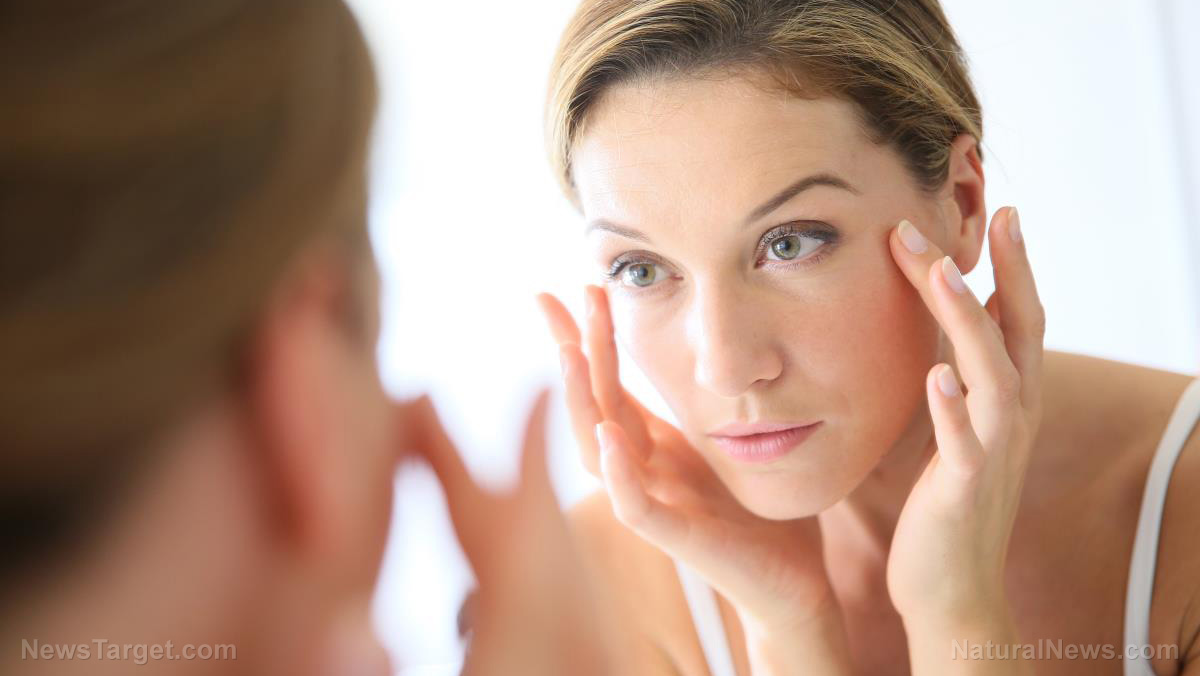How much sun do you need to get enough vitamin D? Dermatologist shares the answer to this and other questions about your skin
07/20/2018 / By Frances Bloomfield

Have you ever wondered how much sun you need to get your daily dose of vitamin D? What about if anything can be done to prevent stretchmarks? Wonder no more: These pressing questions about your skin have been answered by Dr. Rachael Morris-Jones, a hospital dermatologist with more than 20 years of clinical experience under her belt. Writing for the DailyMail.co.uk, she’s shared what she knows to put these queries to rest (though some will be disagreed on, as you’ll see below).
- How much sun is needed? The average person requires around 20 to 25 micrograms (mcg) of vitamin D a day. This is a good starting point, but not the only factor to consider. Sunlight intensity, cloud coverage, skin type, location, and even the month of the year can all affect the amount of time you should use sunning. One way to figure all this out is to visit the Vitamin D Calculator, a project by the Norwegian Institute for Air Research that is exactly what it sounds like. The interface isn’t too user friendly, but it’s an excellent method of gauging how much time you should spend under the sun to get the optimal amount of vitamin D. In addition to this, Morris-Jones has recommended eating foods naturally high in vitamin D, which include oily fish, mushrooms, cheese, eggs, and tofu.
- Can stretchmarks be prevented? Unfortunately, no, you can’t prevent stretchmarks. If you already have them, the most you can do is try to slightly lessen their appearance through creams or therapy. If you don’t have them yet, you can keep your risk to a minimum by controlling your weight, eating healthy, and staying hydrated.
- Do we need to moisturize? People with normal skin don’t really need to as their skin does it for them. However, older people definitely need to since their skin is less effective at producing the natural oil that preserves its softness. Get around this by choosing moisturizers that contain humectants (water-holding ingredients) and occlusives (which are ingredients that create oil barriers to seal in water). Some good natural moisturizers include coconut oil and cocoa butter. However, different areas of your skin have different moisture requirements, so what works for your legs may be less so for your face, and vice-versa.
- Does milk cause acne? The answer may not be conclusive, but according to Morris-Jones, there may indeed be a link between milk and acne breakouts. She cited one Australian study wherein foods high on the glycemic index (GI) scale caused a group of men to develop more acne that was greater in severity. Milk isn’t too high on the GI scale, but adding sugar (such as in chocolate- or strawberry-flavored milk) will definitely hike up that number. To be safe and sure, try to stick to a diet rich in low-GI foods (namely vegetables, nuts, and whole grains) and limit your drinking of milk.
- Do nail supplements work? Not really, but rubbing an oily moisturizer on your nails may help. Putting a moisturizer like coconut oil on dry nails can maintain the water level of your nails, which in turn makes them less brittle and more resistant to breakage.
- What’s good for wounds? Vaseline is the top choice, and we’ll have to disagree with her here. It’s the brand name for petroleum jelly, a byproduct of oil refining that can harm your skin by drying out your pores and keeping moisture out. When this occurs, scabs are more likely to form and healing can take even longer. In lieu of Vaseline, opt for more natural wound remedies such as honey or aloe vera. Honey possesses natural antibacterial properties and encourages wound healing, while aloe vera has compounds that soothe cuts, scrapes, and even burns. You can also use tea tree oil (which is abundant in antibacterial, anti-fungal, and antiseptic qualities) or lavender oil (which can help curb pain and prevent infection). (Related: How to Stop Bleeding – Top 10 Simple Effective Tips.)
- Does “dermatologically tested” mean anything? In Morris-Jones’ own words: “it means nothing.” She explained that there are no “industry-agreed set of tests” that products have to go through before they hit the shelves. “We don’t know what tests were carried out on the product – or even if it passed or failed,” she said.
So there you have it. Though there may have been some contention regarding Vaseline, these are more or less the answers you’ve wanted to know to skin-related questions, straight from the mouth of a dermatologist.
Find out how to keep your skin looking and feeling its best by visiting NaturalHealth.news for more tips, tricks, and stories.
Sources include:
Tagged Under: beauty, skin and nails, skin care, skin health, sunlight, supplements, vitamin D, wound care




















